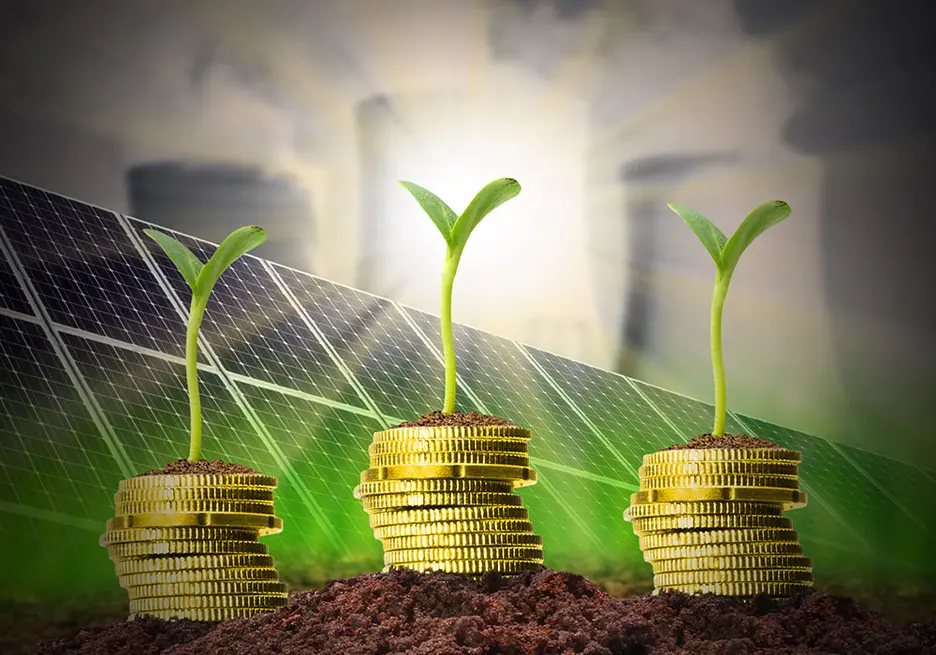Three Trends in Sustainable Finance across LAC

In this landscape, emerging markets, particularly Latin America and the Caribbean, are uniquely positioned to cash in on this growing investment trend. For financial institutions (FIs) that are incorporating environmental and social factors into their credit analysis, these three trends are shaping the debate:
Technology benefits sustainability
The rapid onset of fintech companies has the potential to scale the sustainable development agenda. Technology is providing users with greater, more efficient, and more immediate access to information that can translate into “increased transparency, accountability and collaboration across sectoral boundaries”, according to a 2016 UN Environment (UNEP) study.
Geospacial imagery and analysis is one primary example where low cost, high quality and easy access to data are transforming the way we identify and monitor land-use change and deforestation. Among these initiatives, the World Resources Institute is developing Global Forest Watch Pro, a portfolio monitoring and risk management tool. It provides deforestation and fire alerts in near real-time using satellite imagery and detect tree-cover loss, as small as 30 meters. The platform will officially launch in October, 2017 and will provide banks and agribusiness companies the ability to identify illegal or irresponsible deforestation as it happens.
Regulatory and voluntary standards are advancing
Across the region, banks are establishing voluntary standards to manage environmental and social issues within the finance sector. These industry associations give voice to the sector’s own pursuit of sustainable development, and define generally accepted rules of engagement. Examples of voluntary standards include: The Equator Principles, Colombia’s Protocolo Verde, and Paraguay’s Mesa de Finanzas Sostenibles.
These voluntary standards can become mandatory with time. Brazil has followed this trend by issuing a Central Bank Resolution in 2014 that require banks to establish and implement an internal social and environmental responsibility policy. Moreover, with taxation and fiscal incentives, Brazil is sending a clear market signal to require companies and banks to price environmental and social externalities and risks into their financial decision-making.
Financial performance is correlated with ESG factors
Incorporating sustainability issues into corporate valuations are not any different to other factors that executives consider in managing for performance, but they do occur with a greater time lag according to a recent study by McKinsey, the global management consultancy. That markets reflect environmental, social and governance (ESG) factors is not new. The LAC region was an early adopter in the creation of the 2005 Bovespa Corporate Sustainability Index (CSI) in Brazil. The index includes 34 companies across 15 sectors that are considered to operate in a sustainable and ethical manner, and provide corporate reporting on ESG risk data. From its creation in 2005, the companies listed on the Sustainability Index significantly outperformed those companies listed on the Ibovespa (145.36% gain vs 94.11% gain) and were slightly less volatile (25.25% vs 28.05%) according to 2016 data. These findings are supported by a wealth of academic and banking research which illustrated the positive correlation between ESG factors and financial performance.
As the market has shown, companies that manage for so-called triple bottom line performance —economic, environmental and social— can realize better gains over the medium to long-term relative to companies that don’t. Within the finance sector, IDB Invest (formerly known as Inter-American Investment Corporation) works hand-in-hand with its borrowers to integrate environmental and social analysis in these institutions’ on-lending.
The market increasingly acknowledges the benefits of environmental and social performance as sustainable finance moves into the main stream. This message is paramount in IDB Invest’s 17th annual Sustainability Week, that will be held on Cartagena, Colombia this week. It will provide training to over 50 banks throughout Latin America and the Caribbean on environmental and social risk management. Banks will learn the fundamentals of risk management for these areas, and glean insights on how to price these drivers into longer-term portfolio risks and returns.
LIKE WHAT YOU JUST READ?
Subscribe to our mailing list to stay informed on the latest IDB Invest news, blog posts, upcoming events, and to learn more about specific areas of interest.
Subscribe



